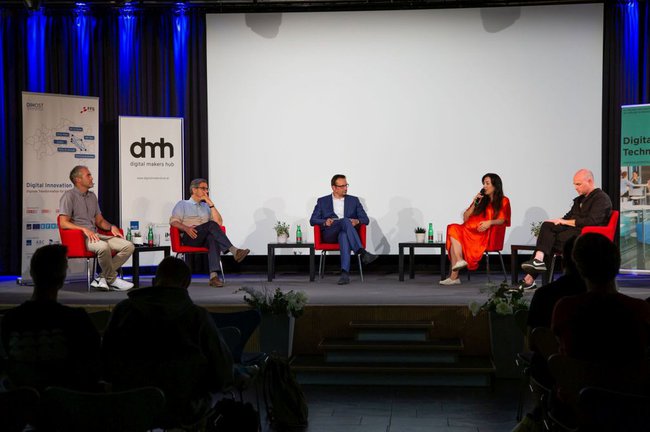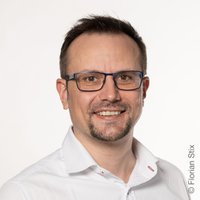Art & Technology: Artificial Creativity
Panel Discussion and New Collaboration on Artificial Creativity

As part of the Creative Media Summer School, the English-language panel discussion “Art & Tech – Artificial Creativity” took place on Wednesday, 29 June 2022. In this framework, ideas for the human-centred design of a sustainable, digital society were discussed, in particular the field of tension between human creativity and new technologies, such as artificial intelligence.
Whether it is in the arts, in the technology industry, or in politics – all these areas create their own parameters for digital transformation. Cutting-edge digital technologies such as artificial intelligence, augmented & virtual reality, and many more are changing our society and testing our idea of what it means to be human in the digital age.
Field of Tension and Creative Processes
The discussion “Artificial Creativity” explored this tension from a design perspective, and explored how to reconcile creative processes with technologies.
The participants in the discussion were: Clara Blume (cultural diplomat and artist in Silicon Valley, head of the Open Austria Art + Tech Lab), Andrew Blanton (media artist, CNMAT Berkley University of California), Christopher Widauer (Head of Arts and Content, MYTHOS MOZART), Andreas Fraunberger (XR Producer and Managing Director, Junge Römer), and Franz Fidler (Head of the Department Media and Digital Technologies, St. Pölten UAS).
The experts agreed that artificial intelligence will be important for the creative process in the future, but that it is not enough on its own. A person is needed to determine whether a result also has meaning. Creativity also needs to distinguish between the process of creating something new or simply implementing it in automated, new ways. All of this leads to new demands regarding the skills of future generations and thus also for educational programmes of schools and universities.
Values, Social Competencies, Technical Skills
“Teaching values as well as social and technical skills is important. However, it is also important to recognise challenges and to overcome them – that will be the recipe for success in the future. We need to invite future generations to pursue questions and let them experience how rewarding it can be to solve problems – of course also with the support of new technologies”, says Franz Fidler, Head of the Department of Media & Digital Technologies, summarising the closing statements of all four panellists.
The discussion took place as part of the Inspiring Chats series of the St. Pölten UAS’ Digital Makers Hub and was organised by the St. Pölten UAS in cooperation with Open Austria, KAT – Kreativwirtschaft Austria, Digital Innovation Hub Ost, and the Digital Makers Hub. The Digital Makers Hub is funded by the Federal Ministry for Digital and Economic Affairs as part of the programme “Digital Innovation Hubs in Austria”.
